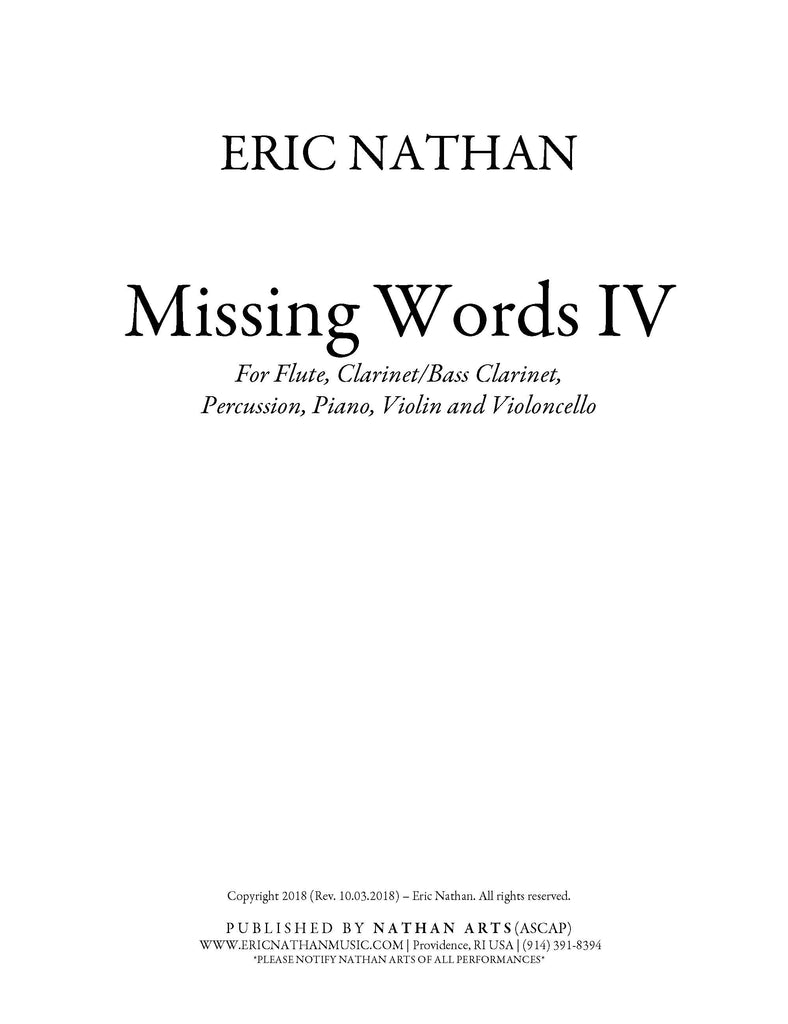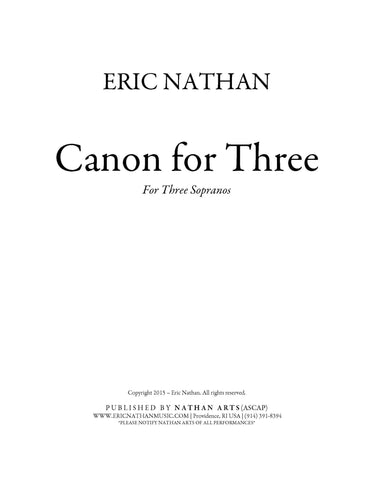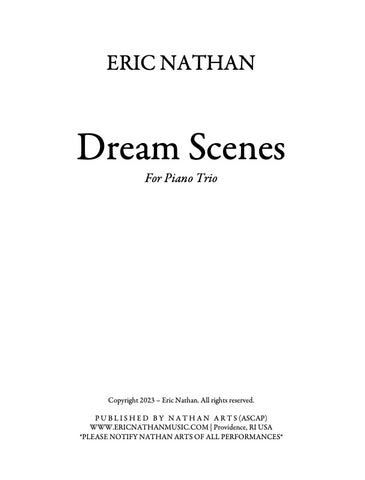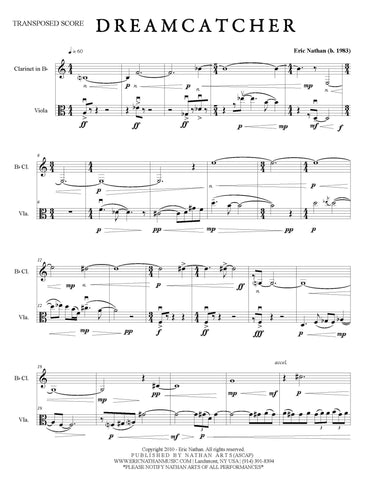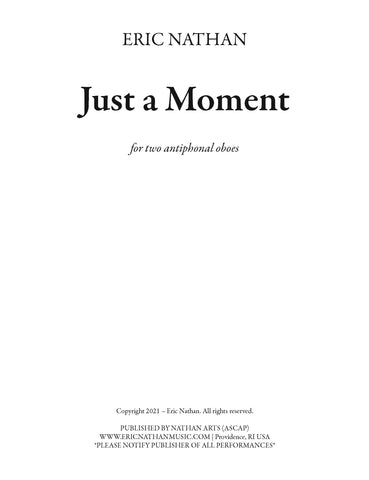Missing Words IV (2018) - For Flute, Clarinet, Violin, Cello, Piano, Percussion
$ 150.00
Instrumentation
For Flute, Clarinet/Bass Clarinet, Violin, Cello, Piano, Percussion
Commissioned by Boston Musica Viva for its 50th Anniversary Seasons
Program Note
“Missing Words IV” (2018) is the fourth in an ongoing series of compositions composed in homage to Ben Schott’s book, Schottenfreude (Blue Rider Press/Penguin Group), a collection of newly created German words for the contemporary world. The German language has the capability to create new words through the combination of shorter ones and can express complex concepts in a single word for which there is no direct translation in other languages. Such words include Schadenfreude, Doppelgänger and Wanderlust, and these have been adopted into use in English. With his new book, Ben Schott proposes new words missing from the English language that we can choose to adopt into our own vocabulary.
In my work, I take three of Schott’s words, and their various conceptual associations, as points of creative departure. The first movement responds to the word, “Erkenntnisspaziergang,” which Schott directly translates as “Cognition-Stroll,” and defines as a walk taken with the specific intent of thinking. I find that I use these “thinking-walks” to mull over a thought, trying to come to a deeper understanding of it. In thinking of how to vicariously experience someone else’s private moments of thought, I turned to the phenomenon of the “butt-dial.” With these calls, the caller unknowingly dials their cell phone from a pocket or bag, and the recipient usually only hears the sounds of the phone jostling to the rhythm of the caller’s steps, and can participate in this intimate moment of solitary walking. I used the sounds of a cell phone recording of my own walking as the source material for the sounds of this movement. In such walks, there is a beauty in how the body diligently maintains a walking pace while we consciously drift to other worlds, tuning out the word around us.
The second movement responds to the word, “Dreiecksumgleichung,” which Schott translates as “Triangle-Reorganization.” He defines this as when you introduce two friends together and they form a new relationship without you. This movement is conceived as a mini-ballet between two trios of friends. The first section is a virtuosic musical game, where the violin (our protagonist) invites a friend (the cello) to play, and then introduces the bass clarinet to the group. The trio works together admirably, but gradually the cello and bass clarinet find a new attraction to one another and leave the violin. In the second half, we find a similar situation with the flute, piano and percussion. In the end, the flute and violin, each now friendless, find each other and discover they are a good fit, albeit with subtle alterations to their musical motives.
The final movement is the most abstractly associated with the word that inspired it, “Tageslichtspielschock,” which Schott translates as “Daylight-Show-Shock.” This word refers to the shocking sensation of experiencing bright daylight when leaving a dark theater. Like the first movement, we find ourselves in an internal world, far removed from the one outside. But, here, perhaps there is a need stay longer and reflect before summoning the strength to return to the light that awaits.
“Missing Words IV” was commissioned by Boston Musica Viva. It follows three previous works in the Missing Words series, which were composed for the Berlin Philharmonic’s Scharoun Ensemble, American Brass Quintet, and Christopher and Parry Karp, respectively. (Note: the English translations used in the movement titles are quoted directly from the text of Ben Schott’s Schottenfreude, 2013).
Duration
18 minutes
Score Preview
